Is sleeping in a hammock good for you?
A look at the benefits – and potential adverse effects – of sleeping in a hammock when you’re camping
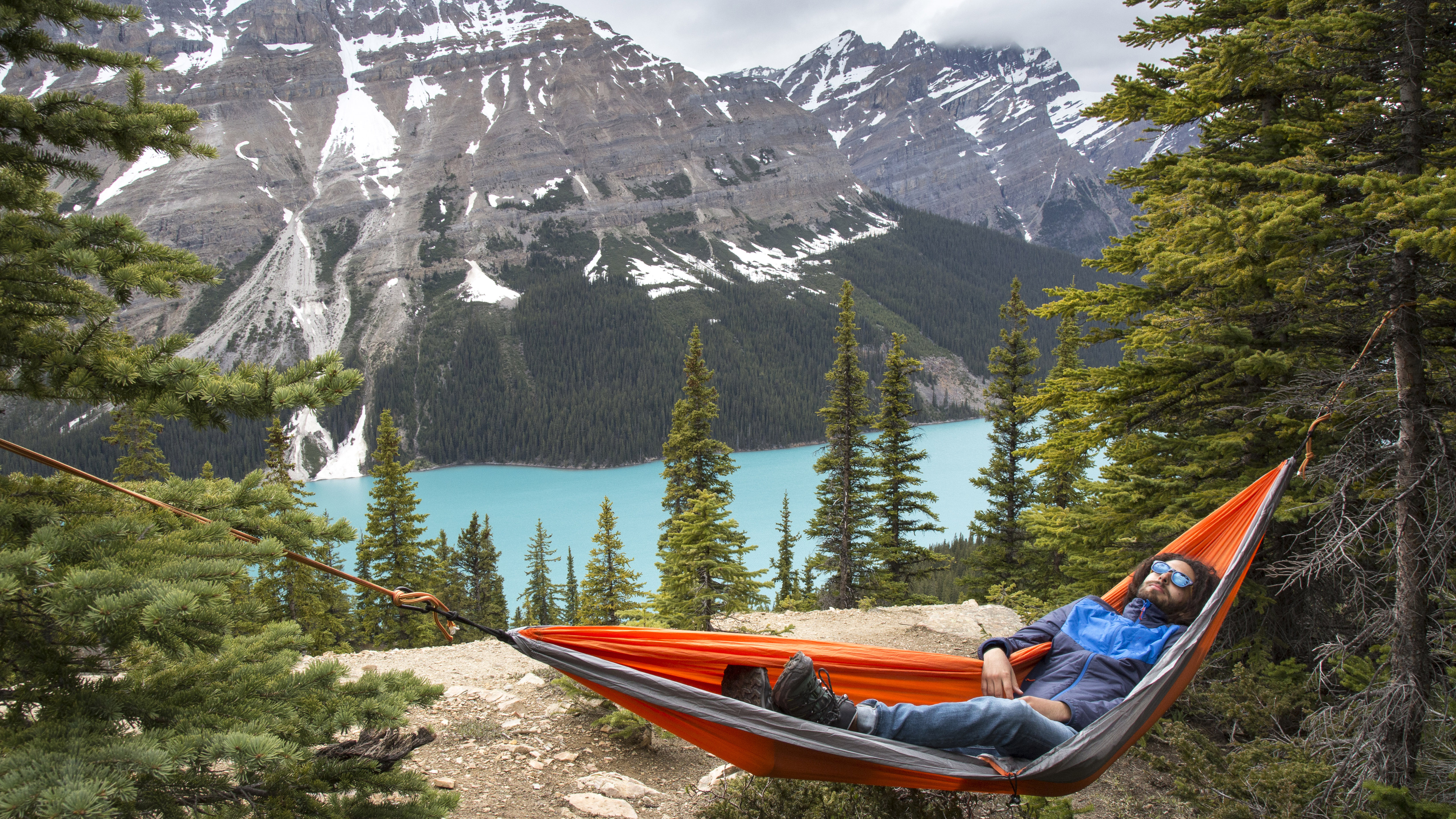
All the latest inspiration, tips and guides to help you plan your next Advnture!
You are now subscribed
Your newsletter sign-up was successful
Many of us would agree that relaxing in a hammock is, quite literally, the stuff of dreams. That weightless sensation of being suspended in midair, the gentle rocking created by a warm breeze, and the feeling of being immersed in nature without the separation of tent walls. It’s bliss.
These days, hammock camping is becoming increasingly popular. What started out as a few fringe campers bringing a hammock along for an afternoon nap has turned into a legitimate part of many campers' sleep systems, whether they’re heading out for a weekend in the wild or looking for a lighter way to travel on the Appalachian Trail.
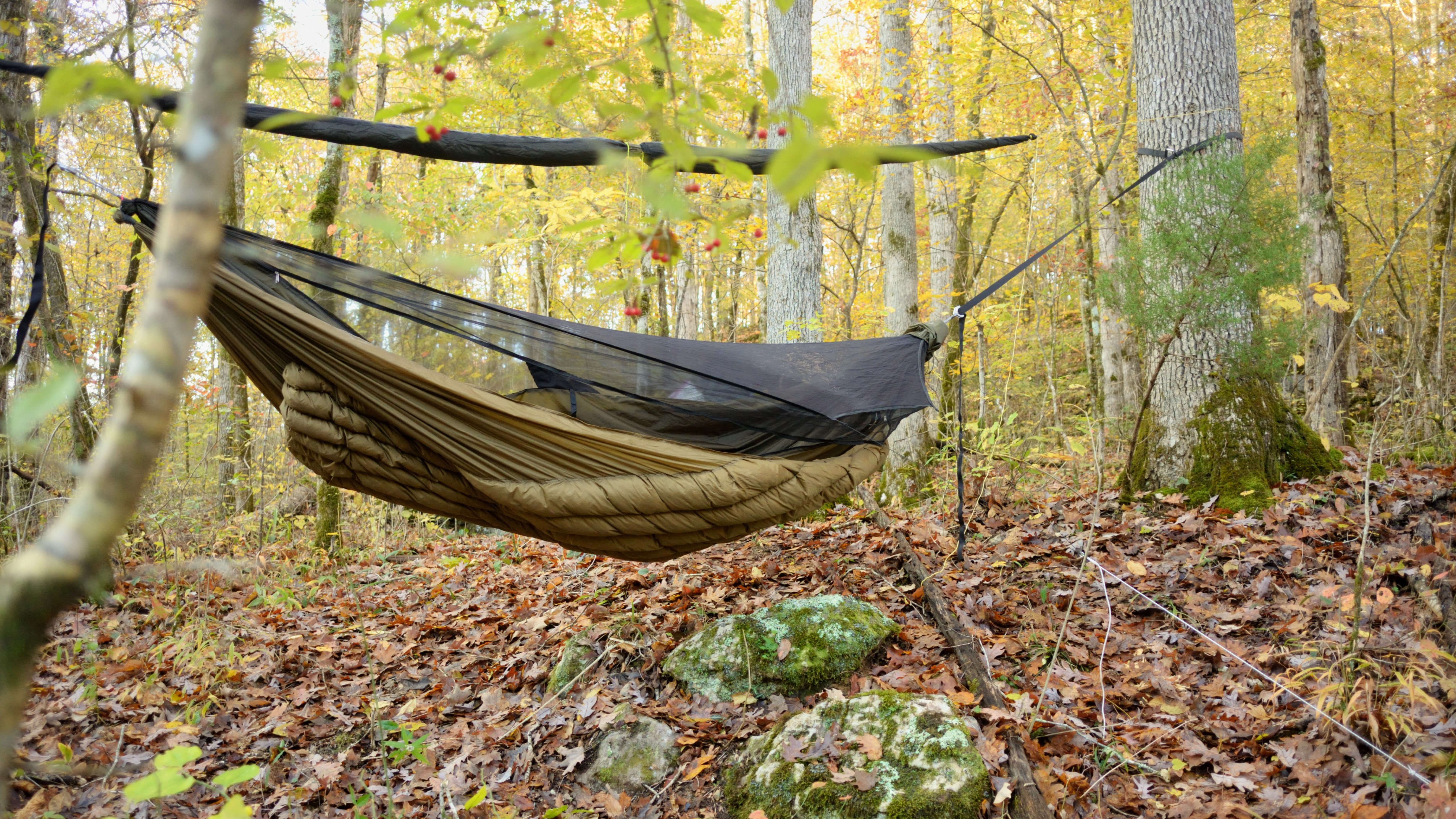
But is sleeping in a hammock good for you? Many of you have asked this question. After all, we’ve had it hammered into us that a nice, firm mattress at home is best for avoiding back pain, and a lot of campers report better back health after spending a few weeks with nothing but a sleeping pad between them and the hard ground. Sleeping on a moving piece of nylon that potentially allows for your whole body to curve like a banana seems like it should really produce the opposite effect, leaving us all limping down the trail after a night under the stars. And does that rocking motion and weightless feeling really lull you to sleep, or would your nervous system be happier on solid ground?
We all enjoy a night of hammock camping here at Advnture, though none of us has spent weeks or even months using one as a bed, so we thought we’d take a look to see if there is any research on the benefits – or adverse side effects – of sleeping in a hammock.
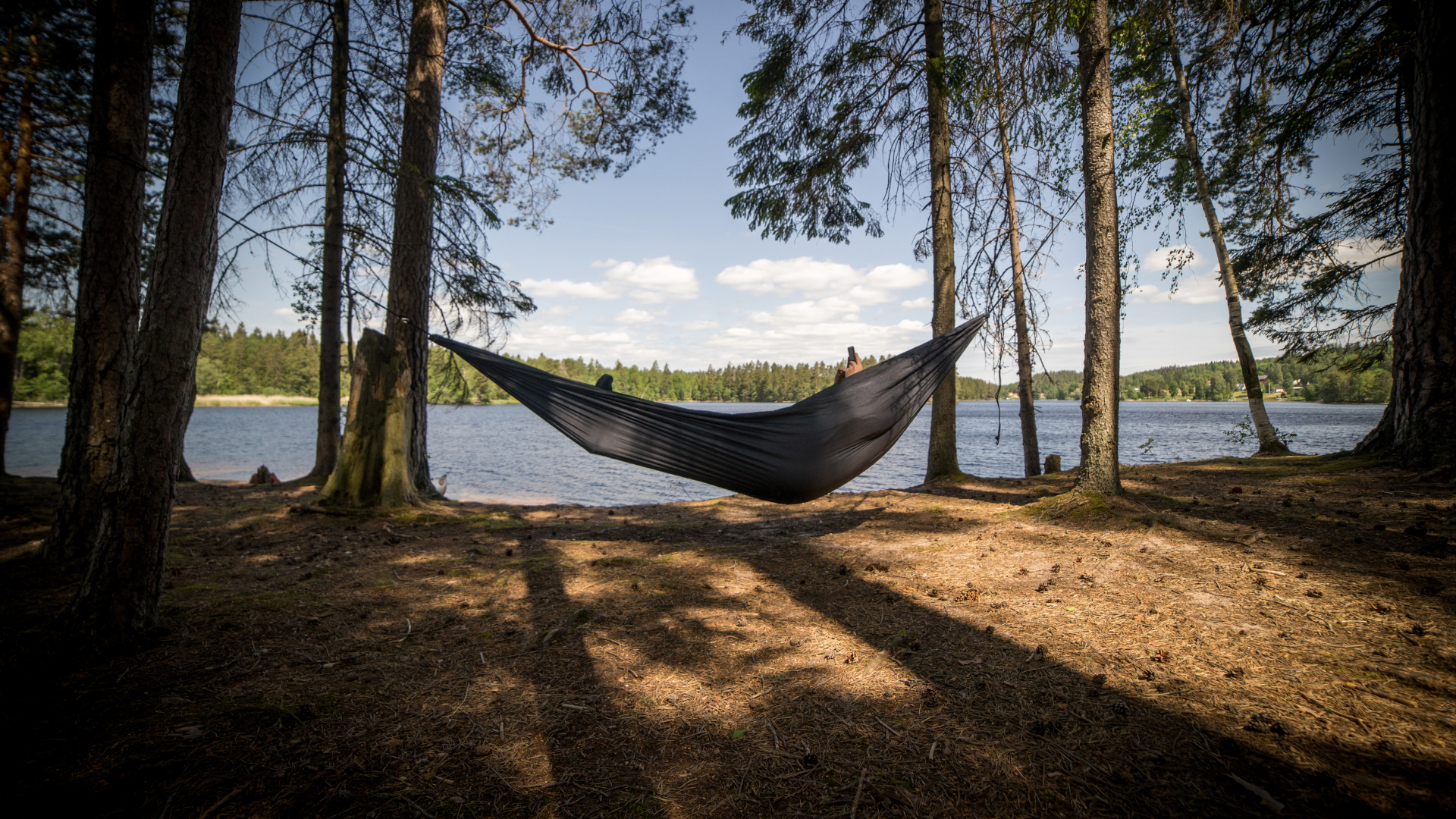
Is sleeping in a hammock good for you?
When it comes to benefits, what most hammock fans love is the rocking motion, which they claim helps lull them to sleep, and it turns out that this may actually support better sleep. Back in 2011, scientists at the University of Geneva in Switzerland set up a study where they rigged up a bed that would rock their subjects every four seconds. Their results showed that the rocking motion, which you also experience in a hammock, helps you to fall asleep faster and increases the duration of stage N2 sleep – non-REM sleep from which you can be awakened easily. So the rocking motion of sleeping in a hammock really does lull you into sleep more easily, though don’t aniticpate more deep sleep in a hammock necessarily, and expect to be awakened by any buzzing bees or curious wildlife that might come sniffing around.
The scientists uncovered even more potential benefits beyond just dropping off faster. They also found that the rocking motion induces a sustained boosting of slow brain waves, such as Theta and Alpha brain waves which are associated with creativity and problem solving, and spindle activity – bursts of brain activity which have been implicated in processing information, according to Science Direct. So when you wake up from your hammock nap, you might even find yourself unravelling problems and generating exciting new projects while you’re bounding down the trail.
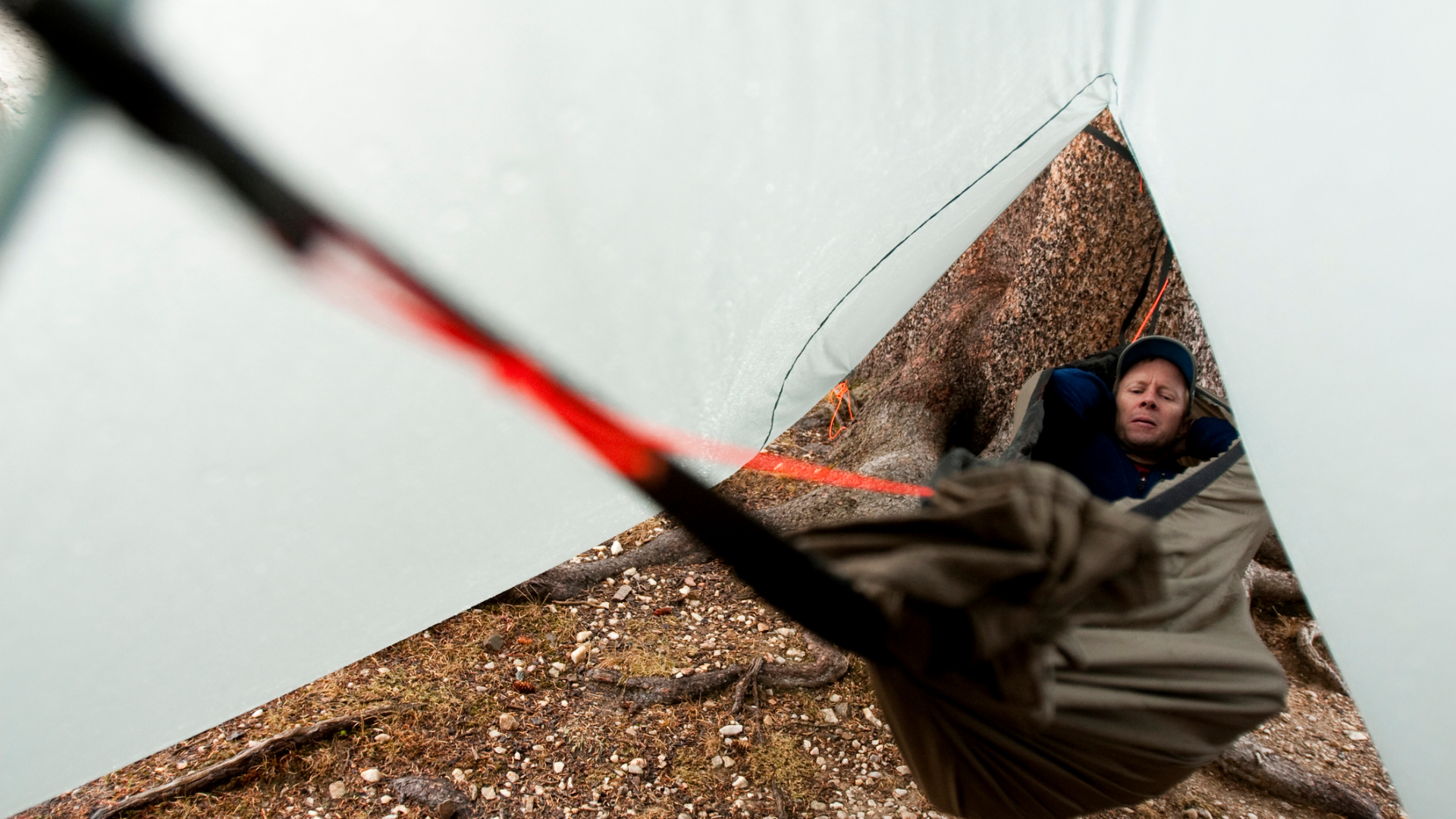
All of this said, it’s important to note that while this experiment mimicked one aspect of a hammock, it wasn’t actually performed using hammocks, so it doesn’t necessarily take into account other factors that might affect your sleep, such as ambient noise and weather.
All the latest inspiration, tips and guides to help you plan your next Advnture!
For those of you worried about sleep quality in a hammock, scientists in Mexico performed a study in 2021 on the sleep quality between bed and hammock users. Their results showed that the difference between the two was negligible, with hammock users only experiencing an average of 19.67 minutes less sleep each night than bed users. In fact, they found that BMI and sex were greater predictors of sleep quality than bed type.
When it comes to camping, there are lots of other factors that might affect how well you sleep in a hammock too. If you don’t have a hammock underquilt, you might be too cold, for example, whereas if you’re camping somewhere with lots of snakes and creepy crawlies, you’ll feel more comfortable off the ground. You also need to take into account the fact that hammock sleeping forces you to sleep on your back, which may not be your ideal sleep system, and if you’re a side sleeper you’ll always be better off in a tent.
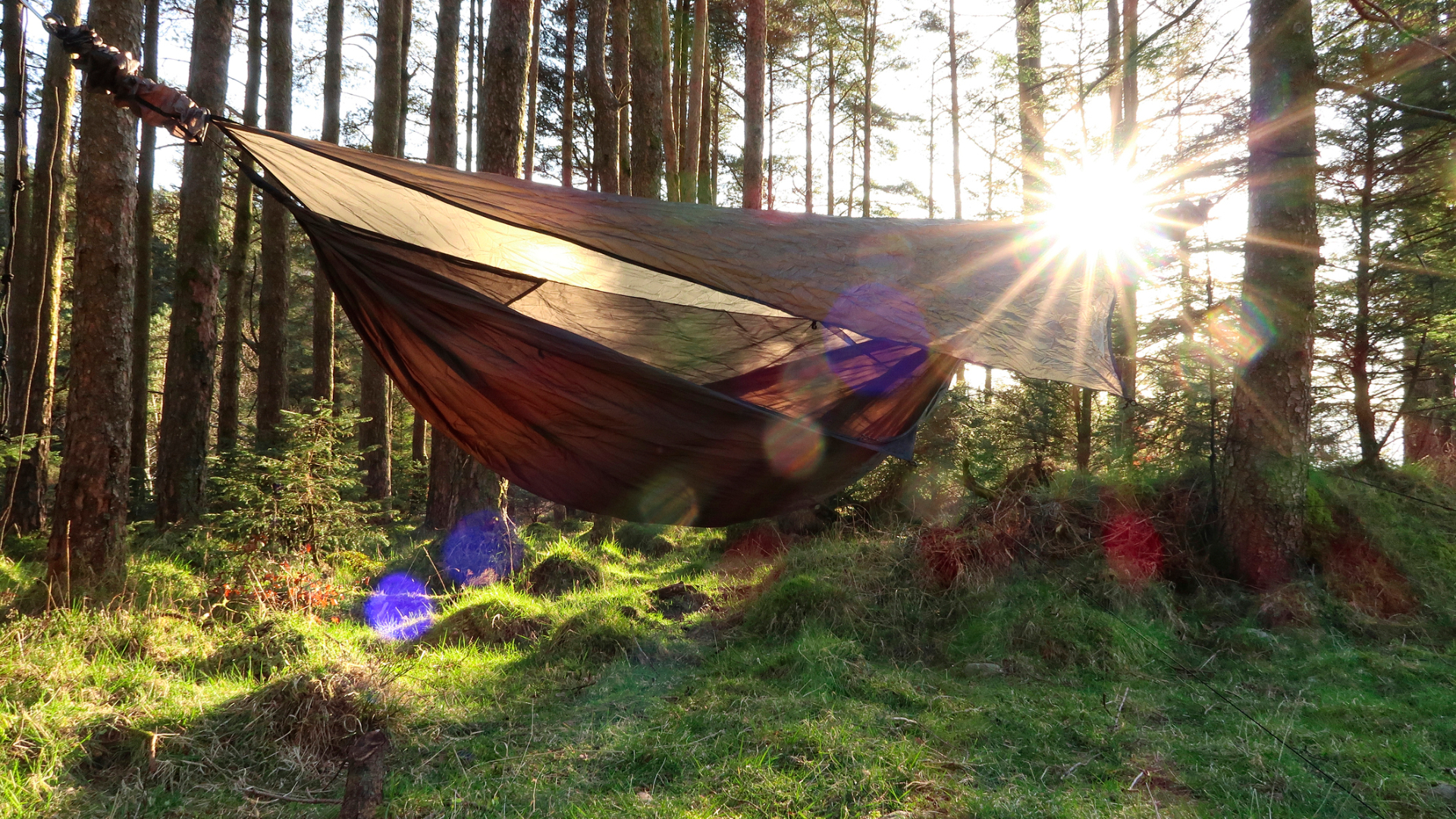
Then there’s the question of whether sleeping in a hammock has any adverse effects on your spine. Many people assume it does, because of the forced curvature on your spine, but the research is scant. In 2015, a small study by Brazilian researchers examining the effects of hammock sleeping on the spine concluded that consistent hammock sleeping may affect your posture. However, in 2019, a spine specialist told the Wall Street Journal he found it unlikely that occasional hammock use would change the shape of your spine.
There haven’t been any long term studies on any correlation between sleeping in a hammock and back pain, so for now, the best thing you can probably do is try one out in a short term situation – say, at home, where you can climb out and get into bed if it bothers your back, or on a one-night backpacking trip rather than setting off on a thru-hike with nothing but a hammock to rest in.
To reduce the likelihood of back pain, if you are planning on doing a substantial amount of camping in a hammock, look for a proper camping hammock such as the Ticket to the Moon Original Pro Hammock which has an integrated ridgeline that allows you to pull the hammock into a flatter orientation and keep your back straight. Also make sure you read up on how to hang a hammock to avoid other pitfalls, like falling out, which would certainly counter any benefits to sleeping in a hammock, and invest in a hammock tarp to keep the rain off.
Julia Clarke is a staff writer for Advnture.com and the author of the book Restorative Yoga for Beginners. She loves to explore mountains on foot, bike, skis and belay and then recover on the the yoga mat. Julia graduated with a degree in journalism in 2004 and spent eight years working as a radio presenter in Kansas City, Vermont, Boston and New York City before discovering the joys of the Rocky Mountains. She then detoured west to Colorado and enjoyed 11 years teaching yoga in Vail before returning to her hometown of Glasgow, Scotland in 2020 to focus on family and writing.

